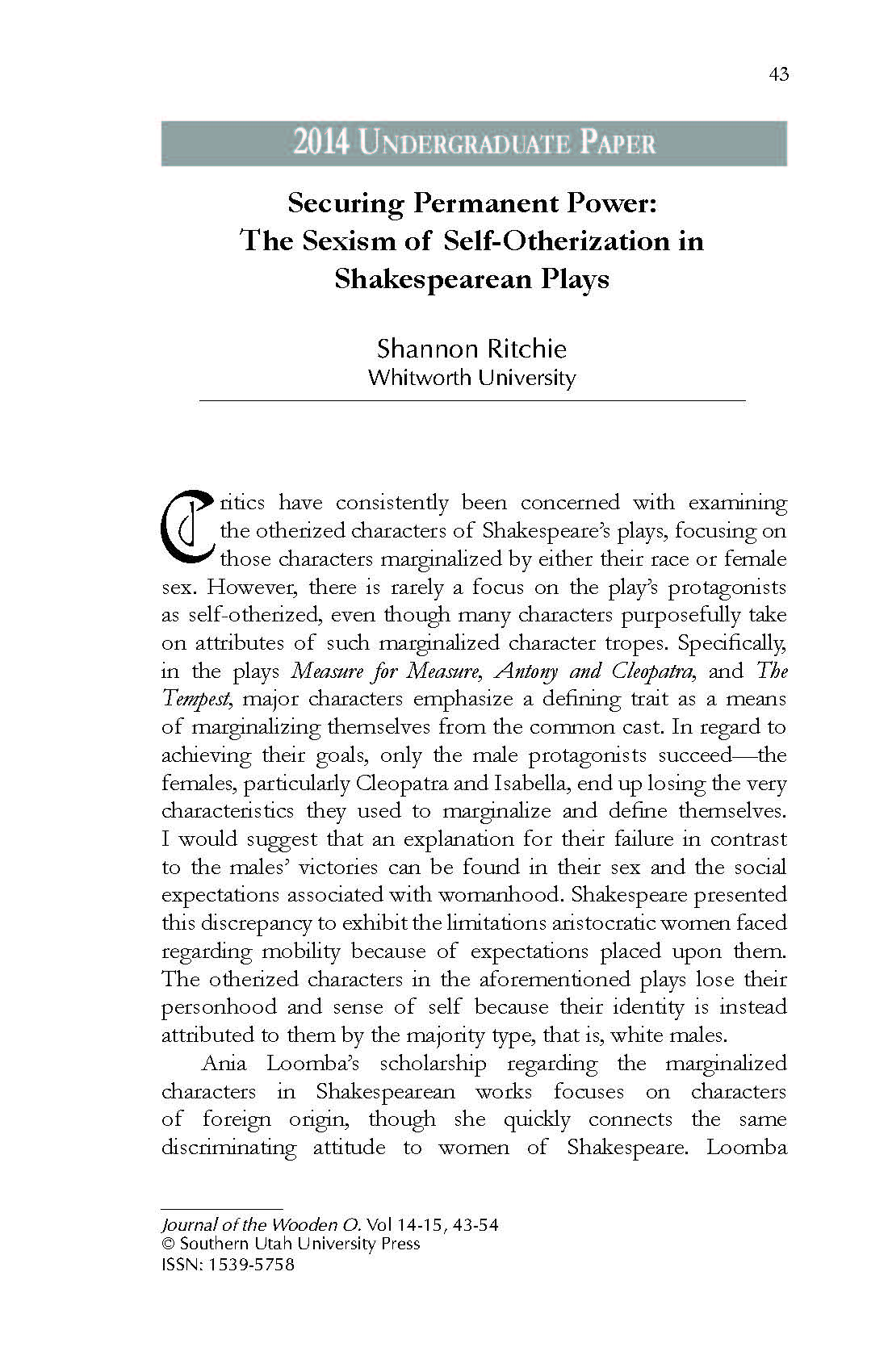Securing Permanent Power: The Sexism of Self-Otherization in Shakespearean Plays
Main Article Content
Abstract
Critics have consistently been concerned with examining the otherized characters of Shakespeare’s plays, focusing on those characters marginalized by either their race or female sex. However, there is rarely a focus on the play’s protagonists as self-otherized, even though many characters purposefully take on attributes of such marginalized character tropes. Specifically, in the plays Measure for Measure, Antony and Cleopatra, and The Tempest, major characters emphasize a defining trait as a means of marginalizing themselves from the common cast. In regard to achieving their goals, only the male protagonists succeed—the females, particularly Cleopatra and Isabella, end up losing the very characteristics they used to marginalize and define themselves. I would suggest that an explanation for their failure in contrast to the males’ victories can be found in their sex and the social expectations associated with womanhood. Shakespeare presented this discrepancy to exhibit the limitations aristocratic women faced regarding mobility because of expectations placed upon them. The otherized characters in the aforementioned plays lose their personhood and sense of self because their identity is instead attributed to them by the majority type, that is, white males.
